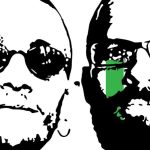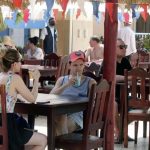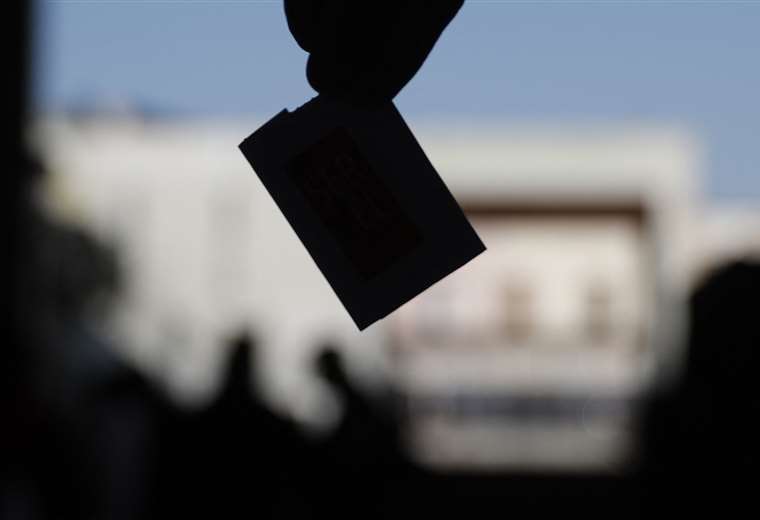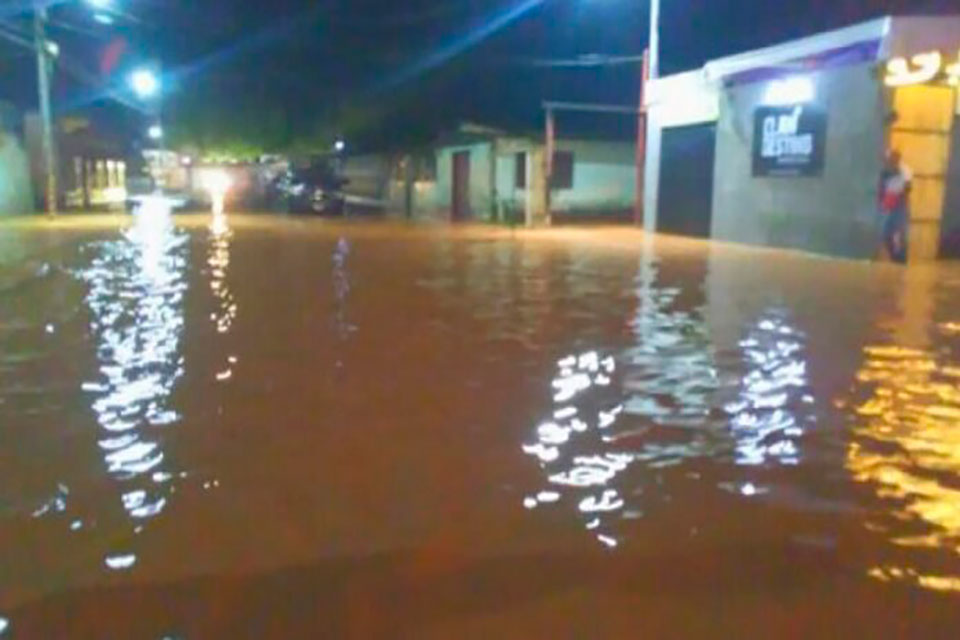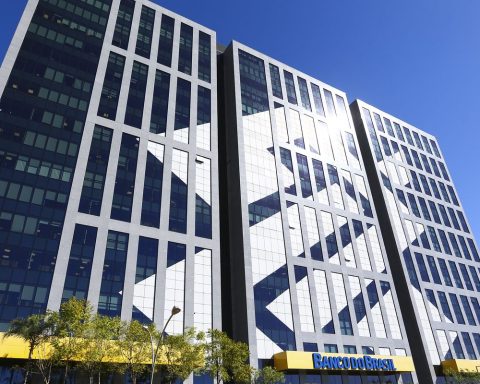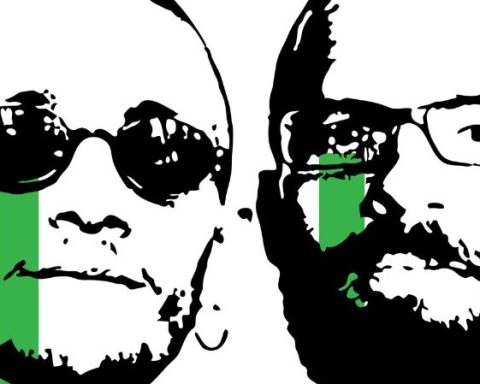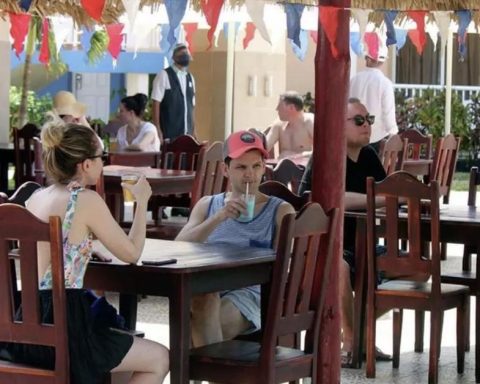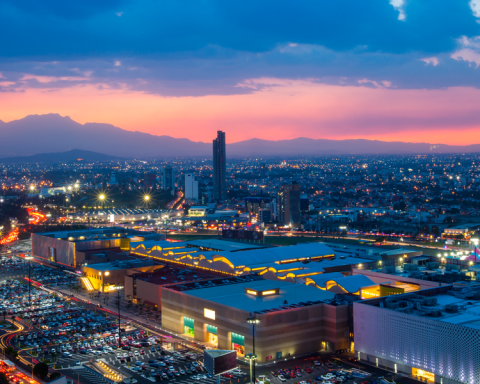actor and playwright Raphael Spregelburd is the author, director and one of the protagonists of “Hell”work that defines “like a bitter comedy, where misunderstanding and chaos have a certain grace”and whose premiere will take place this Wednesday at the Astros theater.
“In the work we have approached a taboo and an area that is partly unrepresentable in Argentina: the hell of the dictatorship and its suburbs collide with all this paraphernalia of stamps, conventional morals, absurdity, and humor”expressed Spregelburd in an interview with Télam.
This is the first time that a text of his authorship lands on Corrientes Street, upon accepting the invitation of Andrea Stivel and Claudio Gelemurthe producers of Blueteam, who were looking for their material to premiere at the Astros.
Accompanied by Andrea Garrote, Violeta Urtizberea and Guido Losantosthe actor designed a plot with a complex labyrinth about sin, guilt, virtue and the torture of the soul.
With live music from Nicholas Varchauskythe piece deals with the story of a journalist who writes tourism columns and who, after a strange and drunken trip to Chile, wakes up somewhat confused, while two catechists take him out of bed to inform him that the Vatican has abolished hell.
From this situation, the narration proposes that it is no longer a specific place where the damned souls go, but that hell is now everywhere and that in order to escape, seven keys are needed, seven virtues are learned: faith, hope, charity, temperance, justice, prudence and fortitude; although exercising them will seem impossible and will be a challenge since they are incompatible with each other.
“I wanted to work with the idea of hell as a conventional moral space that suddenly dissolves and must find another, more uncomfortable, place between words”explained the interpreter of films such as “The man next door”, “The critic” and the comedy “Vinyl Days”.
The Astros theater produces this piece by the El Patrón Vázquez Company, founded by Garrote and Spregelburd almost 30 years ago, and which will have performances on Wednesdays 7, 14, 21 and 28 at 8:30 p.m., in the hall at Corrientes Avenue 746, in The city of Buenos Aires.
Télam: What was the genesis of “Inferno”?
Raphael Spregelburd: It was a long and layered process. It arose to respond to a request for a work commissioned by the Vorarlberger Landestheater, the public theater of Bregenz, in Austria. They wanted me to write a text about the hell of the Garden of Earthly Delights, by Bosch, to celebrate his 500th birthday. But an arduous request was made to me, because I had already worked on at least seven previous works on flamenco painting: my entire series of deadly sins is based on my free interpretation of the issues that govern his painting and above all it raised a parallelism between the final crisis of the Middle Ages and the crisis of Modernity, which is ours. So it seemed a bit ridiculous to me to go back over trodden terrain. However, I had two pending debts that interested me. One was to think about hell not from a poetic and metaphorical place, but from a more real and concrete perspective. And it seems to me that we Argentines live with the dictatorship something very similar to hell. On the other hand, when I finished the heptalogy of the deadly sins, I wanted to work on its other side: the seven virtues. So I decided to take advantage of this invitation from my Austrian colleagues to draw this piece in seven frames, like a set of seven infernal circles, one inside the other, following the conceptual delirium of the virtues.
Several years after its premiere in Bregenz, about which I really knew little or nothing, I wanted to revisit this enigmatic text to stage it in Buenos Aires.
T: What elements did you take into account to write the story?
RS: It started with more or less recent news from the Vatican: they announced without much pomp that hell no longer existed, that it had been nothing more than a metaphor. Yes, it’s true, some of us already knew. The artist León Ferrari had even been claiming almost legally: it is not possible that they promise eternal torture in a real place somewhere imaginary. Well, all of a sudden, and just as some sins had been decriminalized many years before, such as gluttony and laziness, the Catholic Church has had to adapt its discourse (its grammar) to current times, which could lead us to think that the whole construction of what we suppose to be moral is nothing but a convention.
“If hell is not where it was, where is it now?” asks a catechist in my work. It is everywhere, because it is in the language. And language contaminates reality like a virus.
T: You address issues such as chaos, catastrophe, guilt, fraud, and the civic-military dictatorship, what is the reflection that the work raises?
RS: The only thing that my works usually say is that the world is strange. A work is not a sociological thesis that should shed verifiable light on a matter of reality, but rather it is a parallel reality, which in its grammar of conventions and artifices, offers itself as a neighboring planet from which to look at our planet. With amazement, with pity.
The “chaos theory”, better called the science of totality, has colored most of my recent texts. I believe in complex, non-linear, non-Aristotelian narrative systems, in the image and likeness of the paradigms that a new science (fractal) proposes against Euclidean geometry and Newtonian systems. Chaos is not a formal and complacent disorder, a fashion; it is instead a much more complex form of order, with apparently invisible rules. There is a deeper balance in chaos, which is analogous to other mysteries that have always been the engine of theater: death, love, sexual drive.
In addition to that constant in my work, another one is added, increasingly desperate: the idea of language as a scam. “Inferno” comes to be installed as a continuation of the linguistic experiments and reflections of pieces like “Spam” or “La stubbornness”. There is in the play a protagonist who tries to swindle others; that scam is existential. And there is a language that seeks to cheat its users, creating a universe of words and morals that leaks everywhere. The very definition of the name of the virtues is very equivocal.
And finally there is guilt, which is the central engine that moves these characters. Someone has made a mistake and caused irreparable damage. But who is really to blame? The figure of the informer, of the traitor, has been a taboo in the arduous and insoluble dialogue of our post-dictatorship. Ana Longoni, in her book “Betrayals”, pursues this issue by tracing the theme in literature and in Argentine society. Every survivor of an extermination camp of the dictatorship is placed in a place of suspicion; some militant groups even held in a quasi-religious (and militaristic) way that one had to die in battle rather than fall into the hands of the enemy, and surviving capture was read as synonymous with treason. Longoni explains the painful passage in which the confession that was obtained through the torturers swapped their blame for the victims themselves. We wanted to make this issue, for which we have no answer other than astonishment and pain, the theme of “Inferno” and instead of imagining a hypothetical, funny and metaphorical hell, we raised our voices a little to say that there are people who they have lived and died in an absolutely real, completely historian hell.
T: What does the company El Patrón Vázquez represent for you?
RS: It’s my house, my family, my way of being and being in the theater. But like every home, it has a mutant spirit. Of the original group, only Andrea Garrote (co-founder) and I, in addition to the musician Nicolás Varchausky, who in this case joins the scene live for the first time, contributing an extraordinary range of musical resources, from the electroacoustic to the electric guitar and the Casio organ. There is also our usual spatializer, Santiago Badillo, who in this case has put together an incredible space, made of the same “horror vacui” as Bosch’s paintings. El Patrón Vázquez is an open couple; In this way we also preserve the love we have for each other and the desire that brings us together for different projects. We are not a factory, we are a meeting point.









